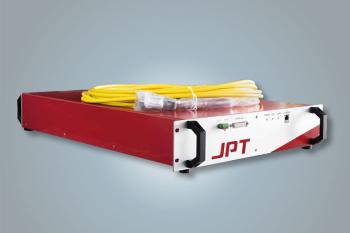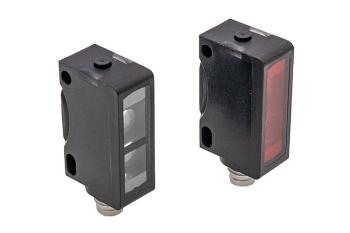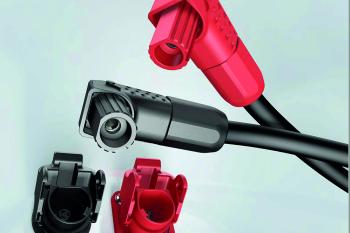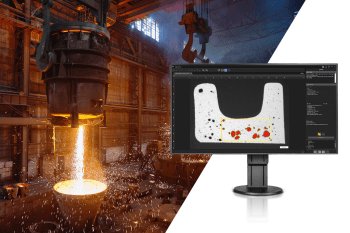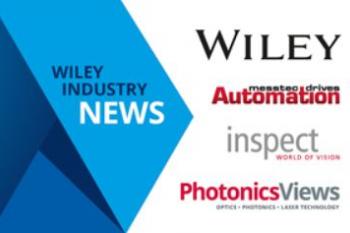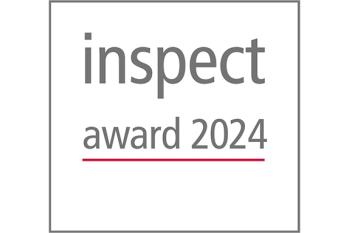Topics with Impact: All you ever wanted to know about 3D
3D Vision and 3D Metrology in the INSPECT Panel Discussion
The European Market Data Report on machine vision recently published by the EMVA, European Machine Vision Association, documents it: 3D technologies are on the rise. In 2008 already close to 10% of the total sales of application specific machine vision systems (ASMV) out of Europe has been generated with 3D metrology. In this number the sales of 3D robot vision, 3D inspection and 3D identification is not even counted. The American machine vision association AIA even determined the share of 3D-based systems among all ASMVs sold in North America in the range between 13% and 15%.
Also the Vision, international leading trade show for machine vision, taking place in Stuttgart from November 3rd to November 5th, will show this. Not only will we see a whole range of new 3D-based products from the established suppliers of components, products and system solutions, but we will also see quite a few new players with a clear dedication to this field.
3D technologies is a generic term for a very wide field of methods, sensors, algorithms and applications. Compared to the traditional 2D technologies of machine vision they come with an additional level of complexity, additional hardware requirements and more often than not also at additional cost. What then is the additional benefit for the user, which technology is the best for which application, what is state-of-the-art today and what more can be expected in the future? Will machine vision technologies find their way into traditional 3D metrology, today still dominated by coordinate measurement machines? Will the 3D metrology suppliers expand their portfolio towards inline measurement in production?
These and more questions will be addressed by the INSPECT in a panel discussion with leading experts from 3D machine vision and 3D metrology. In the framework of the Industrial Vision Days, organized by VDMA (German Engineering Federation) during the Vision trade show, the following panelists will share their expert opinion with you:
Dr. Wolfgang Eckstein, MVTec Software
Dr. Wolfgang Eckstein is co-founder and managing director of MVTec Software GmbH in Munich, Germany. After obtaining a PhD in Computer Sciences from the Technical University of Munich he initially stayed on as assistant scientist, but then founded in 1996 together with Dr. Olaf Munkelt the company MVTec. From 1996 until 2000 Dr. Eckstein was Chairman of the working group "Image Understanding/Object Recognition" of the International Society for Photogrammetry and Remote Sensing and in the year 2000 he received the Talbert Abrams Award of the American Society for Photogrammetry and Remote Sensing. In both of the years 1986 and 1991 Dr. Eckstein was awarded by the Deutsche Gesellschaft für Mustererkennung (German Society for Pattern Recognition).
MVTec Software GmbH is a leading international manufacturer of software for machine vision, and the developer and vendor of the machine vision standard software Halcon. This tool, optimized for the needs of OEMs and system integrators, enables engineers to set up their own solutions for a specific machine vision task. Halcon serves all industries by a library of more than 1,400 operators for blob analysis, morphology, pattern matching, measuring, and identification, e.g. With methods for Perspective Matching, Multigrid Stereo, Sheet-of-Light Measurement and 3D Camera Calibration Halcon provides a comprehensive software portfolio for fast and sound solutions for highly demanding 3D vision challenges. MVTec has more than 30 established distributors, located throughout Europe, North- and South-America, Australia, and Asia. In addition, MVTec, LLC works out of Boston, MA (USA).
Dr. Heiko Frohn, Vitronic
Dr.-Ing. Heiko Frohn studied electrical engineering at Darmstadt Institute of Technology and was subsequently awarded a doctorate in the field of machine vision at Ruhr University in Bochum. Dr. Frohn has been working for Vitronic since 1986 and currently is the Managing Director and head of the Industrial Automation Division.
Vitronic is a medium-sized and owner-operated company. Since its formation in the year 1984, the company has grown without assistance. Today, Vitronic is represented on four continents and counts as one of the world's leading companies in the field of machine vision. The company provides everything from standard products with modules that can be expanded according to customer specifications to individualized special solutions. Vitronic looks back on many years of experience with 3D measuring techniques that are used in various fields: in traffic technology, exact vehicle classification forms the basis for correctly collecting tolls and for monitoring traffic. In intralogistics, postal operators and mail order companies utilize 3D measuring techniques in order to check paid parcel postage, to automatically prepare invoices and to optimize the loading of vehicles. In the field of industrial automation, 3D measuring techniques are used for implementing the identification and handling of complex and dimensionally unstable part geometries. Another field of application is the three-dimensional inspection of welding seams. 3D measuring techniques are also used for body scanning. The obtained information makes it possible to produce custom-tailored clothing, to ergonomically design automobiles and to carry out training controls for athletes.
Dr. Mats Gökstorp, Sick
Dr. Mats Gökstorp is a member of the Management Board of Sick AG and responsible for the Advanced Industrial Sensors Division. After finishing his doctorate Mats Gökstorp joined the small innovative Swedish vision company IVP. IVP is one of the pioneers within 3D machine vision and has developed a range of high performance 3D cameras based on a unique imaging ASIC. He spent the following years developing IVP from a three persons operation to a 40 persons company with sales in Europe and North-America. After 2003 he managed the integration of IVP into the Sick group and took over the Advanced Industrial Sensors division in 2007.
Sick is one of the world's leading producers of sensors and sensor solutions for industrial applications. For decades, Sick has ranked among the most innovative enterprises globally in the sensor industry. The latest technological insights and methods are implemented into innovative products and system solutions. With the combination of high end 3D vision technology and industrial sensor technology Sick is making 3D vision solutions available for a broad range of industrial applications, from automotive and packaging industries to logistics distribution centres. The focus on connectivity and easy-to-use creates superior customer benefits. By making vision sensors as easy to use as standard photoelectric sensors customers can focus on the solution instead of implementing technology. Innovation creates a broad range of sensors and sensor solutions which position Sick as a technological and market leader in the customer segments of factory, logistics, and process automation.
Per Holmberg, Hexagon Metrology
Per Holmberg joined the group in April 2004 as President of Hexagon Metrology Europe. His responsibility involves both the commercial and the manufacturing operations of all Hexagon Metrology factories in EMEA. All activities are closely integrated within the Hexagon Metrology organization, worldwide.
Hexagon Metrology is part of the Hexagon AB Group and includes leading metrology brands such as Brown & Sharpe, CE Johansson, CimCore, CogniTens, DEA, Leica Geosystems (Metrology Division), Leitz, m&h Inprocess Messtechnik, PC-DMIS, Quindos, Romer, Sheffield, Standard Gage and Tesa. Hexagon Metrology brands represent an unrivaled global installed base of millions of Coordinate Measuring Machines (CMMs), portable measuring systems and handheld instruments, and tens of thousands of metrology software licenses. Hexagon Metrology empowers its customers to fully control manufacturing processes that rely on dimensional precision, ensuring that products manufactured precisely conform to the original product design. The company offering of machines, systems and software is complemented by a wide range of product support, aftermarket and value-added services.
Len Metcalfe, LMI Technologies
Leonard Metcalfe is the Chairman of LMI Technologies. Prior to this Mr. Metcalfe as the Chief Executive Officer used his over 33 years experience working with 3D/2D sensor technology and process optimization to lead LMI. Mr. Metcalfe was the driving force in merging the various companies to form LMI in 1997. In 1976, he co-founded Dynamic Control Systems, Inc. and was personally involved in designing many of the company's earlier products. Mr. Metcalfe received his Diploma of Technology in Control Electronics from the British Columbia Institute of Technology in Vancouver, Canada. He is a member of the SME (Society of Manufacturing Engineers) and the SPIE (International Society of Optical Engineers).
LMI Technologies is a leading global provider of 3D/2D sensor technology for original equipment manufacturers and systems integrators. Customers from diverse industries engage LMI to develop and deliver sensors for numerous automated vision, control, and measurement applications. Since 1976, over 50,000 LMI "Sensors That See" have been put to work by LMI partners in some of the harshest working environments imaginable. As a key player in sensors based on machine vision technology, LMI continues to add to its over 100 technology patents. The LMI organization represents a talented group of people, working hard to engineer the best 2D and 3D sensor technology available today. The solutions developed with partner OEMs and integrators continue to leverage the company´s global base of optical inspection expertise, refined over three decades of effectively overcoming diverse machine vision challenges.
Dr. Christian Wöhler, Daimler
Christian Wöhler received the Diploma in Physics from Würzburg University in 1996, the Doctorate degree in Computer Science from Bonn University in 2000, and the Habilitation (Venia Legendi) in Applied Informatics from Bielefeld University in 2009. He is working as a senior research scientist in the Environment Perception department of Daimler Group Research and Advanced Engineering in Ulm. Since 2005 he is a visiting lecturer in the Applied Informatics Group at the Faculty of Technology of Bielefeld University. His scientific interests are in the domains of 3D computer vision, photogrammetry, and pattern classification, with applications in the fields of driver assistance systems and industrial machine vision. He is author of more than 60 scientific publications. Recently, his monograph "3D Computer Vision -- Efficient Methods and Applications" has been published.
Daimler is a globally leading producer of premium passenger cars and the global market leader of heavy- and medium-duty trucks as well as buses. The department of "Environmental Perception" is concerned mainly with the development of analysis methods for sensor-based driver assistance systems, especially in the area of stereoscopic vision, radar signal processing and pattern classification. Additionally 3D image processing methods for applications in industrial metrology and quality control as well as in safe human-machine interactions are developed. The latter were implemented, e.g., in the "SafetyEye" system, the first commercially available certified 3D vision system for the safeguarding of machines in production environments, which was developed jointly with an external cooperation partner.
The INSPECT panel discussion will take place on November 4th, 2 pm - 3 pm in the Forum Industrial Vision Days at Neue Messe Stuttgart.
More information on products, systems and solutions from the area of 3D technologies can also be found in the next issue of the INSPECT. This issue 11 will be published in mid November and will feature a special focus on "World of 3D".

